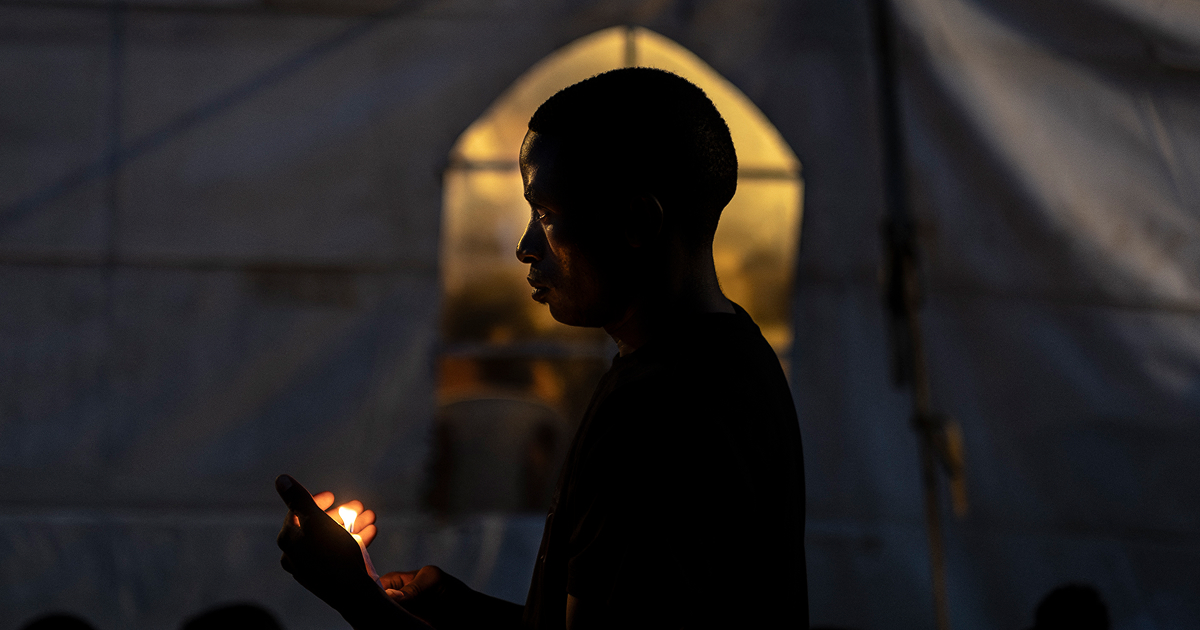In revolutionary times, it is instructive to examine the penal codes that revolutionary regimes produce. In 1920, following the Russian Revolution, abortion was made legal. Three years earlier, in 1917, according to Sheila Fitzpatrick, a historian of Soviet Russia, “suicide was no longer a crime as it had been before 1917".
Our current regime in England and Wales last month voted at Third Reading in favour of Kim Leadbeater's Bill to legalise assisted suicide, and in the same week also voted to decriminalise abortion, at least as far as the mother is concerned. The votes signalled that this is a revolutionary government with a vast, if fragile, majority. It is worth noting that the revised Soviet legal code of 1922 outlawed assisting or coercing a minor or dependant to commit suicide.
During the Harold Wilson government of the 1960s, we saw legislation to decriminalise both suicide and homosexual acts as well as to liberalise divorce and access to birth control, and, of course, to legalise abortion. Revolutionary governments which legislate in these ways transform the culture by attacking taboos, all too often assuming that such taboos are “irrational” or worse, somehow opposed to “sovereignty of the people” – even as the changes are imposed by decidedly minority interests opposed to the common good.
Perhaps sensing the revolutionary moment, certain voices have been raised to push more boundaries while the time is ripe. Last week Rohan Silva, a wearisomely trendy former senior policy advisor to Conservative Prime Minister David Cameron, informed readers of The Timesthat “Surrogacy rules are outdated and heartless”.
Silva begins his article by referring to Adam Smith’s Theory of Moral Sentiments and positing that “we humans have a natural gift for putting ourselves in other people’s shoes and … this hardwired empathy helps shape our ethics". Silva does not tell us how exactly it “shapes our ethics” or show how exactly a moral judgement, which normally appeals to reasons valid for everyone, is affected by what those around us happen to feel or desire.
Philosophers such as David Hume and Adam Smith do, it is true, attempt to tie moral approval to the opinion of others so that our reactions are adjusted to what an impartial spectator might desire. But does this approval, based on feelings, give me a reason to act according to it, when the approval is surely only relevant if based on what might, in fact, be good moral reasons?
So how to respond with actual reasons to Rohan Silva’s simple appeal to “empathy” for those who commission surrogate babies? His empathy is selective, but more importantly, surrogacy is not just about feelings, whether of birth mothers or genetic parents. It is about objective familial bonds, the rights of children and birth mothers and the planned fragmentation of maternity before a child is even conceived.
Pregnancy is archetypally maternal: a birth mother is a mother and UK law still recognises this in that the “surrogate” has the right to keep the baby if she wishes. But Silva is shocked at the possibility of a surrogate “out of the blue” saying that she wants to keep “your infant”, then leaving the hospital with “your child” and finally being allowed to “keep your baby. For ever.”
“Can you imagine the devastation you’d feel if this happened to you?” asks Silva rhetorically. Nothing here about the devastation of the surrogate mother – the last mother “holding the baby”, so to speak – losing her own maternal rights against her will, due to a sordid if well-meant contract with the commissioning parties.
Pregnancy is not just babysitting: it makes a woman a mother, whether or not she sees herself in those terms. Some surrogate mothers successfully detach themselves emotionally, describing themselves as “carriers”, “incubators” or “hotels” for housing other people’s babies. In the words of my Bios Centre colleague Dr Helen Watt:
“here the surrogate is in effect … treating her pregnant body and thus her very self as a subpersonal instrument – or at least, seriously devaluing what she/her body does in pregnancy. She is not treating her ability to gestate a child as bearing a unique and even sublime interpersonal meaning. Just as prostitution is a radical impoverishment of sex, surrogacy seems a radical impoverishment of pregnancy, in treating the bodily ‘housing’ of a child in such an impersonal and pragmatic way.”
One surrogate mother comments:
“My life was mundane and pretty lonely. I thought about surrogacy and the sense of achievement and purpose it would bring. I also considered the bond I would form with the mother; the woman for whom I would carry the baby … She would fuss over me and be protective. I would feel valued and valuable … I will not have any more children of my own. I do not think I could bond with a baby of my own now.
"Having deadened my feelings for so long, I do not know if I could feel anything now. I love my own children. I could never, ever part with them. But I do not know what would happen if I tried to have another to keep, for myself. Would I blot out my emotions? Would I be able to distinguish my own child in my womb from a stranger’s? I really do not know anymore.”
This confession raises the question of emotional, if not financial, exploitation of a woman whose needs for connection and purpose should have been met otherwise, rather than by bearing children for a stranger. We are very far here from natural, marital conception and gestation where the meaning of pregnancy for everyone remains intact, pointing back to the parents’ loving bond with each other and forward to their love and care for the child. That meaning is sacrificed when pregnancy becomes a mere means and altruistic feelings are instrumentalised in a way which demeans the giver.
Rohan Silva and many others sense that at this revolutionary moment, the House of Commons may be ready to propose and pass yet more radical legislation in the medical and reproductive sphere. Radical legal changes in matters of life, death, health and sex will transform society at its roots more than anything else. If we do not intellectually challenge such changes, especially during revolutionary periods, we will lose all downstream battles over legislation.
Feelings and empathy are important and have been powerfully utilised by radicals in Parliament to produce legislation which undermines “superstitions” about the sanctity of life as well as the meaning of pregnancy and sexuality more generally.
It is therefore especially sad, at this time, to learn this week of the demise of the Catholic Anscombe Bioethics Centre, for which I had the honour of working in the 2000s. At a time when threats to the sanctity of life have never been fiercer, intellectual defence of that sanctity is more needed than ever, both within and outside Catholic circles.
The Bios Centre, a secular bioethics institute for which I now work, will continue to make the intellectual case for the Hippocratic principles it was founded to defend. Neglect of such intellectual defence inevitably results in a sentimental approach to matters of the gravest importance, and that sentimentality allows for the ruthless pursuit of policies which demean those bonds without which we are ultimately lost.
Photo: Russian Communist party members and supporters carry portraits of Vladimir Lenin as they walk towards the Mausoleum of the Soviet state founder and revolutionary leader to attend a flower-laying ceremony in Red Square marking the 151th anniversary of his birth, Moscow, Russia, 22 April 2021. (Photo by NATALIA KOLESNIKOVA/AFP via Getty Images.)
Dr Anthony McCarthy is Director of the Bios Centre (bioscentre.org).
In revolutionary times, it is instructive to examine the penal codes that revolutionary regimes produce. In 1920, following the Russian Revolution, abortion was made legal. Three years earlier, in 1917, according to Sheila Fitzpatrick, a historian of Soviet Russia, “suicide was no longer a crime as it had been before 1917".
Our current regime in England and Wales last month voted at Third Reading in favour of Kim Leadbeater's Bill to legalise assisted suicide, and in the same week also voted to decriminalise abortion, at least as far as the mother is concerned. The votes signalled that this is a revolutionary government with a vast, if fragile, majority. It is worth noting that the revised Soviet legal code of 1922 outlawed assisting or coercing a minor or dependant to commit suicide.
During the Harold Wilson government of the 1960s, we saw legislation to decriminalise both suicide and homosexual acts as well as to liberalise divorce and access to birth control, and, of course, to legalise abortion. Revolutionary governments which legislate in these ways transform the culture by attacking taboos, all too often assuming that such taboos are “irrational” or worse, somehow opposed to “sovereignty of the people” – even as the changes are imposed by decidedly minority interests opposed to the common good.
Perhaps sensing the revolutionary moment, certain voices have been raised to push more boundaries while the time is ripe. Last week Rohan Silva, a wearisomely trendy former senior policy advisor to Conservative Prime Minister David Cameron, informed readers of <em>The Times</em> <a href="https://www.thetimes.com/article/189228bf-ce0a-49cd-8aef-531bd8e00496"><mark style="background-color:rgba(0, 0, 0, 0)" class="has-inline-color has-vivid-cyan-blue-color">that</mark></a> “Surrogacy rules are outdated and heartless”.
Silva begins his article by referring to Adam Smith’s <em>Theory of Moral Sentiments</em> and positing that “we humans have a natural gift for putting ourselves in other people’s shoes and … this hardwired empathy helps shape our ethics". Silva does not tell us how exactly it “shapes our ethics” or show how exactly a moral judgement, which normally appeals to reasons valid for everyone, is affected by what those around us happen to feel or desire.
Philosophers such as David Hume and Adam Smith do, it is true, attempt to tie moral approval to the opinion of others so that our reactions are adjusted to what an impartial spectator might desire. But does this approval, based on feelings, give me a reason to act according to it, when the approval is surely only relevant if based on what might, in fact, be good moral reasons?
So how to respond with actual reasons to Rohan Silva’s simple appeal to “empathy” for those who commission surrogate babies? His empathy is selective, but more importantly, surrogacy is not just about feelings, whether of birth mothers or genetic parents. It is about objective familial bonds, the rights of children and birth mothers and the planned fragmentation of maternity before a child is even conceived.
Pregnancy is archetypally maternal: a birth mother is a mother and UK law still recognises this in that the “surrogate” has the right to keep the baby if she wishes. But Silva is shocked at the possibility of a surrogate “out of the blue” saying that she wants to keep “your infant”, then leaving the hospital with “your child” and finally being allowed to “keep your baby. For ever.”
“Can you imagine the devastation you’d feel if this happened to you?” asks Silva rhetorically. Nothing here about the devastation of the surrogate mother – the last mother “holding the baby”, so to speak – losing her own maternal rights against her will, due to a sordid if well-meant contract with the commissioning parties.
Pregnancy is not just babysitting: it makes a woman a mother, whether or not she sees herself in those terms. Some surrogate mothers successfully detach themselves emotionally, describing themselves as “carriers”, “incubators” or “hotels” for housing other people’s babies. In the words of my Bios Centre colleague Dr Helen Watt:
“here the surrogate is in effect … treating her pregnant body and thus her very self as a subpersonal instrument – or at least, seriously devaluing what she/her body does in pregnancy. She is not treating her ability to gestate a child as bearing a unique and even sublime interpersonal meaning. Just as prostitution is a radical impoverishment of sex, surrogacy seems a radical impoverishment of pregnancy, in treating the bodily ‘housing’ of a child in such an impersonal and pragmatic way.”
One surrogate mother comments:
“My life was mundane and pretty lonely. I thought about surrogacy and the sense of achievement and purpose it would bring. I also considered the bond I would form with the mother; the woman for whom I would carry the baby … She would fuss over me and be protective. I would feel valued and valuable … I will not have any more children of my own. I do not think I could bond with a baby of my own now.
"Having deadened my feelings for so long, I do not know if I could feel anything now. I love my own children. I could never, ever part with them. But I do not know what would happen if I tried to have another to keep, for myself. Would I blot out my emotions? Would I be able to distinguish my own child in my womb from a stranger’s? I really do not know anymore.”
This confession raises the question of emotional, if not financial, exploitation of a woman whose needs for connection and purpose should have been met otherwise, rather than by bearing children for a stranger. We are very far here from natural, marital conception and gestation where the meaning of pregnancy for everyone remains intact, pointing back to the parents’ loving bond with each other and forward to their love and care for the child. That meaning is sacrificed when pregnancy becomes a mere means and altruistic feelings are instrumentalised in a way which demeans the giver.
Rohan Silva and many others sense that at this revolutionary moment, the House of Commons may be ready to propose and pass yet more radical legislation in the medical and reproductive sphere. Radical legal changes in matters of life, death, health and sex will transform society at its roots more than anything else. If we do not intellectually challenge such changes, especially during revolutionary periods, we will lose all downstream battles over legislation.
Feelings and empathy are important and have been powerfully utilised by radicals in Parliament to produce legislation which undermines “superstitions” about the sanctity of life as well as the meaning of pregnancy and sexuality more generally.
It is therefore especially sad, at this time, to learn this week of the demise of the Catholic Anscombe Bioethics Centre, for which I had the honour of working in the 2000s. At a time when threats to the sanctity of life have never been fiercer, intellectual defence of that sanctity is more needed than ever, both within and outside Catholic circles.
The Bios Centre, a secular bioethics institute for which I now work, will continue to make the intellectual case for the Hippocratic principles it was founded to defend. Neglect of such intellectual defence inevitably results in a sentimental approach to matters of the gravest importance, and that sentimentality allows for the ruthless pursuit of policies which demean those bonds without which we are ultimately lost.
<em>Photo: Russian Communist party members and supporters carry portraits of Vladimir Lenin as they walk towards the Mausoleum of the Soviet state founder and revolutionary leader to attend a flower-laying ceremony in Red Square marking the 151th anniversary of his birth, Moscow, Russia, 22 April 2021. (Photo by NATALIA KOLESNIKOVA/AFP via Getty Images.)</em>
<em>Dr Anthony McCarthy is Director of the Bios Centre (<a href="http://www.bioscentre.org/"><mark style="background-color:rgba(0, 0, 0, 0)" class="has-inline-color has-vivid-cyan-blue-color">bioscentre.org</mark></a>).</em>


















